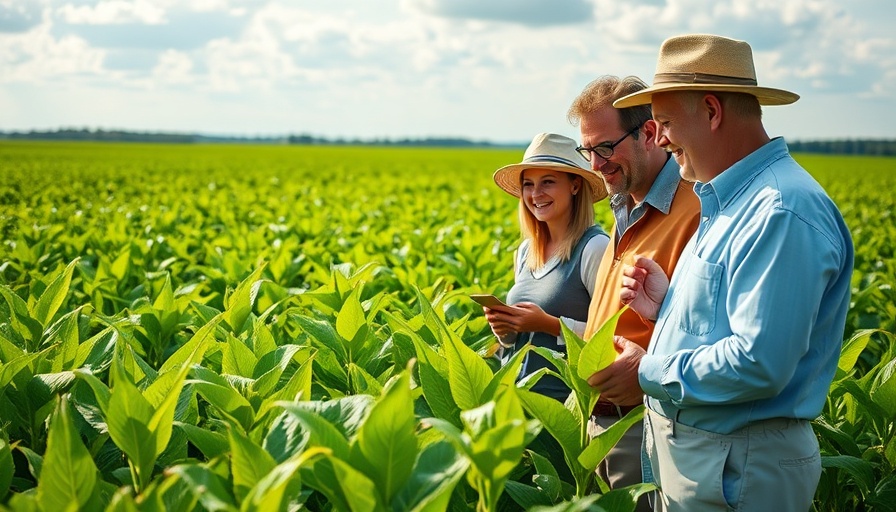
Funding Crisis: The Impact of Politics on Agricultural Development
The Soybean Innovation Lab (SIL), based at the University of Illinois, faced a significant setback in early 2025 when it lost crucial funding due to an Executive Order by then-President Trump, which slashed financial support for the U.S. Agency for International Development. This reduction led to immediate layoffs and operational halts at SIL. However, recently, the lab secured an anonymous donation of one million dollars aimed at partially reinstating its vital work in southern Africa, particularly in Malawi, where the market for soybeans remains largely untapped.
The Potential of Soybeans in Southern Africa
Peter Goldsmith, director of SIL, emphasized the enormous potential for soybean growth in Africa, describing it as "the last large market that doesn't know soy." This statement underscores the opportunities for economic development and food security through soy cultivation in the region. While $1 million represents about 30% of SIL's annual budget and has allowed the lab to keep some projects alive, it has not fully restored operations, leaving many initiatives stalled.
Strategic Events: Promoting Soy Through Industry Gatherings
Among the most anticipated initiatives is an upcoming soybean industry event slated to take place in southern Malawi—the first of its kind. Such events are crucial for cultivating interest in soy products not only locally but also among international stakeholders looking toward Africa for new market opportunities.
Permanence of the Challenges Ahead
The SIL's future remains uncertain as they adapt their focus to more specific deliverables to maximize the impact of the limited funding available. With several initial projects abandoned, the organization must hone in on actionable and profitable approaches that resonate with both local farmers and investors.
Government Response: A Call for Increased Funding
Goldsmith mentioned the ongoing appeals for restored federal funding to support all 17 Feed the Future Innovation Labs operating nationwide. The lack of government backing could threaten not just SIL, but the broader aims of agricultural innovation in a region potentially poised for growth. The response from policymakers will be critical in determining the pace and sustainability of progress in agricultural sectors.
Looking to the Future: The Broader Implications of SIL's Work
The SIL is not just an agricultural project; it represents a convergence of technology, economics, and community development. By fostering local production of soybeans, they could facilitate greater food security and economic growth in southern Africa. As seen in other parts of the world, successful innovation labs lead to enhanced agricultural practices, deepen connections between farmers and markets, and can spur robust economic growth.
Conclusion: The Importance of Agricultural Innovation
With the growing importance of sustainable practices, the role of organizations like the Soybean Innovation Lab in advancing technology and agricultural development is more crucial than ever. Investing in such initiatives not only promotes regional stability but also addresses global food demands. Individuals and businesses interested in agritech and sustainable development should closely monitor SIL's developments and consider supporting its initiatives through funding or partnerships.
 Add Row
Add Row  Add
Add 




Write A Comment